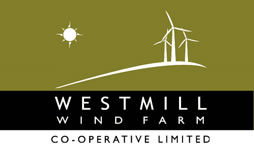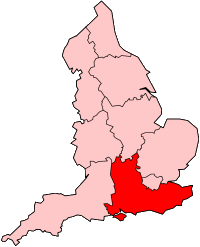
The European Investment Bank (EIB) is the European Union's investment bank and is owned by the 27 member states. It is the largest multilateral financial institution in the world. The EIB finances and invests both through equity and debt solutions companies and projects that achieve the policy aims of the European Union through loans, equity and guarantees.

A cooperative is "an autonomous association of persons united voluntarily to meet their common economic, social and cultural needs and aspirations through a jointly owned and democratically-controlled enterprise". Cooperatives are democratically controlled by their members, with each member having one vote in electing the board of directors. They differ from collectives in that they are generally built from the bottom-up, rather than the top-down. Cooperatives may include:

The Co-operative Group Limited, trading as Co-op and formerly known as the Co-operative Wholesale Society, is a British consumer co-operative with a group of retail businesses, including grocery retail and wholesale, legal services, funerals and insurance, and social enterprise.

The Midcounties Co-operative Limited, trading as Your Co-op, is a consumer co-operative in the United Kingdom with over 700,000 members. Registered in England under the Co-operative and Community Benefit Societies Act 2014, it is a member of Co-operatives UK and Federal Retail Trading Services.
The history of the cooperative movement concerns the origins and history of cooperatives across the world. Although cooperative arrangements, such as mutual insurance, and principles of cooperation existed long before, the cooperative movement began with the application of cooperative principles to business organization.
A student housing cooperative, also known as co-operative housing, is a housing cooperative for student members. Members live in alternative cooperative housing that they personally own and maintain. These houses are designed to lower housing costs while providing an educational and community environment for students to live and grow in. They are, in general, nonprofit, communal, and self-governing, with students pooling their monetary and personal resources to create a community style home. Many student housing cooperatives share operation and governing of the house. As with most cooperatives, student housing coops follow the Rochdale Principles and promote collaboration and community work done by the members for mutual benefit.

Community wind projects are locally owned by farmers, investors, businesses, schools, utilities, or other public or private entities who utilize wind energy to support and reduce energy costs to the local community. The key feature is that local community members have a significant, direct financial stake in the project beyond land lease payments and tax revenue. Projects may be used for on-site power or to generate wholesale power for sale, usually on a commercial-scale greater than 100 kW.

Westmill Wind Farm Co-operative Ltd is a community-owned Industrial and Provident Society that owns 100% of the Westmill Wind Farm which is an onshore wind farm near the village of Watchfield in the Vale of White Horse, England. It has five 1.3 MW wind turbines erected in a line along the disused runway of the former RAF Watchfield. The wind farm has a power output of up to 6.5 MW, projected to produce as much electricity in a year as used by more than 2,500 homes. The turbines were erected in 8 days and the first fully month of generation was March 2008. It has an open day usually in June each year.
Narec, since 2014 known as the National Renewable Energy Centre, is a part of the Offshore Renewable Energy (ORE) Catapult, a British technology innovation and research centre for offshore wind power, wave energy, tidal energy and low carbon technologies. ORE Catapult's head office is in Glasgow, Scotland. The centre operates multi-purpose offshore renewable energy test and demonstration facilities. It is similar to other centres, such as NREL in the US and National Centre for Renewable Energies (CENER) in Spain. The National Renewable Energy Centre is based in Blyth, Northumberland.

A community solar project, farm or garden is a solar power installation that accepts capital from and provides output credit and tax benefits to multiple customers, including individuals, businesses, nonprofits, and other investors. Participants typically invest in or subscribe to a certain kW capacity or kWh generation of remote electrical production. The project's power output is credited to investors or subscribers in proportion to their investment, with adjustments to reflect ongoing changes in capacity, technology, costs and electricity rates. Community solar provides direct access to the renewable energy to customers who cannot install it themselves. Companies, cooperatives, governments or non-profits operate the systems.
Ecopower is a Belgian cooperative founded in 1991, financing renewable energy projects in Flanders.
Co-op Energy is a membership-owned British energy supply company based in Warwick that began trading in 2010. It sells renewable electricity and gas to its ethically concerned member owner/customers and is an established large operator, an alternative to the Big Six energy suppliers. Constituting half or more of the Your Co-op Utilities division of its parent society Midcounties Co-operative, Co-op Energy is the only co-operative supplier in the British market, meaning supplied customers can voluntarily acquire an ownership share and thereby receive rights to influence the governance of the business, stand for election and have a say in formulating the products it offers.
Vineyard Power Co-operative is "a community owned renewable energy co-operative based on the island of Martha's Vineyard, Massachusetts."

Westmill Solar Co-operative is the industrial and provident society that owns the Westmill Solar Park in Oxfordshire, England, believed to be the largest community-owned photovoltaic power station in the world.

Energy4All facilitates the creation and development of community energy in the United Kingdom, based on the experience gained in the creation of the UK's first wind co-op, Baywind Energy Co-operative. It has gone on to raise over £40m on behalf of the co-operatives and community benefit societies through community share offerings.

Bank of Industry Limited is Nigeria's oldest and largest Development Finance Institution (DFI) currently operating. It is owned by the Ministry of Finance Incorporated (MOFI) Nigeria (94.80%), the Central Bank of Nigeria (CBN) (5.19%) and private shareholders (0.01%).
Octopus Energy Group is a British renewable energy group specialising in sustainable energy. It was founded in 2015 with the backing of British fund management company Octopus Group, a British asset management company. Headquartered in London, the company has operations in the United Kingdom, France, Germany, Italy, Spain, Australia, Japan, New Zealand and the United States. Octopus is the UK's largest supplier of electricity to domestic customers, and the second largest in domestic gas.

Greg Jackson is a British entrepreneur and businessman who is the founder and CEO of Octopus Energy.












